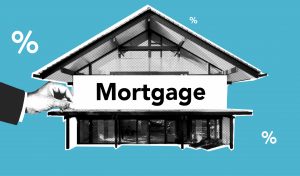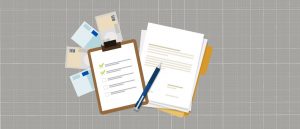
Adjustable Rate Mortgages - The Basics
An adjustable rate mortgage (ARM) has an interest rate that fluctuates periodically. This is in contrast to a fixed rate mortgage, which always has the same interest rate.
Every ARM has basic components:
- An index
- A margin
- Adjustment Period
- An interest rate cap
- An initial interest rate
The Index
An ARM’s interest rate is tied to one of many economic indices, some examples of which are the 1-year constant maturity Treasury security, the Cost of Funds Index, or the London Interbank Offered Rate. Different indices move at different rates so know the characteristics of the index used for your ARM.
The Margin
The interest rate for your ARM will be calculated by adding a margin to the interest rate from the index. The margin is basically the markup charged by the lender that allows them to make a profit off of your loan, such as adding 2% to the index, where the 2% is the margin. The margin of your loan usually does not fluctuate.
The Adjustment Period
The Adjustment Period controls when and how often your interest rate changes. For example, if your ARM has an adjustment period of 1 year, your interest rate will be subject to change at the end of each year and your monthly mortgage payment will be recalculated to reflect this change.
The Interest Rate Cap
Interest rate caps are built into the loan to protect the borrower from drastic interest rate fluctuations. The caps limit how much the interest rate or monthly payment can change at the end of each adjustment period. An ARM can also have a cap for the life of the loan. For example, during the life of a loan, the interest rate can only be increased by 5%.
The Initial Interest Rate
The Initial Interest Rate is the interest rate that you start with at the beginning of your loan period. The length of time your loan stays at this rate is built into the loan. For example, you may stay at the initial interest rate for 1 year, 5 years, or another length of time depending on your specific mortgage. This type of ARM is generally referred to as a Hybrid ARM. The initial interest rate for an adjustable rate mortgage is generally lower than that of a fixed rate mortgage.

Adjustable Rate Mortgages - The PROS & CONS
Now that you know what an ARM is and how it works, you may be wondering what the advantages and disadvantages are. So let’s explore that issue.
Offering adjustable rates allows lenders to transfer part of the interest rate risk from themselves to the borrower. If you get a fixed rate mortgage and the interest rate then goes up, it costs the lender money. However, if you have an adjustable rate mortgage, as the interest rate goes up, so does your payment, thus compensating the lender. Adjustable rate mortgages are particularly useful when unpredictable interest rates make fixed rate loans hard to get.
One of the main advantages of an adjustable rate mortgage is that the initial interest rate is lower than that of a fixed rate mortgage. A lower rate means lower payments, which may help you qualify for a larger loan. This is an important detail if you expect your future earnings to rise. In this case, the ARM will allow you to qualify for a larger loan amount earlier rather than later.
However, this information should only be used with care. If you use an ARM to qualify for a larger loan amount than a fixed rate would allow you and the interest rate then rises drastically or your income doesn’t rise, you may not be able to afford the larger monthly payments, thus causing you to default on your loan.
A situation in which an adjustable rate mortgage makes sense would be if you are only going to keep the house for a short period of time. If you are only planning to own your house for only a few years, the risk of the interest rate rising goes down. This means that you will get a better rate with an ARM, making it a good choice. However, if you plan on staying in your home for a long period of time, a fixed rate may be a better option.
The lesson here is to have a plan. Know what your goals are in purchasing a home and plan for all eventualities. Do your research when shopping for an ARM and consider the worst-case scenario.

Which ARM is the Best Alternative?
How would you like a mortgage loan where you did not have to make the whole payment if you did not want to? Or would you like a loan with an interest rate about 1% below a thirty-year fixed rate mortgage and pay zero points? Or a loan where you did not have to document your income, savings history, or source of down payment? How would you like a mortgage payment of only 1.95%? You can have all that with the 11th District Cost of Funds (COFI) Adjustable Rate Mortgage.
Sound too good to be true? Sound like a bunch of hype?
Each statement above is true. However, it is also only part of the story and loan officers do not always tell you the whole story when promoting this loan. Other loan officers may try to scare you away from adjustable rate mortgages. However, once you become aware of all the details of the loan, it is an excellent way to buy the house of your dreams, especially when fixed rates begin to go up.
ARMs in General
Adjustable rate mortgages all have certain similar features. They have an adjustment period, an index, a margin, and a rate cap. The adjustment period is simply how often the rate changes. Some change monthly, some change every six months, and some only adjust once a year. Indexes are simply an easily monitored interest rate that moves up and down over time. Adjustable rate mortgages have different indexes. The margin is the difference between your interest rate and the index. The margin does not change during the term of the loan.
So if you have an adjustable rate mortgage and you wanted to calculate your interest rate on your own, all you have to do is look up the index in the paper or on the internet, add the margin, and you have your rate.
Indexes and the 11th District
The “Prime Rate” you hear about in the news is one interest rate index, although it is very rare that mortgages are tied to this index. It is more common to find adjustable rate mortgages tied to different treasury bill indexes, the average interest rate paid on certificates of deposit, the London Inter-Bank Offered Rate (LIBOR), or the 11th District Cost of Funds.
COFI ARM Index
The 11th District Cost of Funds (COFI) is the weighted average of interest rates paid out on savings deposits by banking institutions in the 11th district of the Federal Home Loan Bank (FHLB), which is located in San Francisco. The 11th District includes the states of California, Nevada, and Arizona.
The COFI index moves slower than the other indexes, making it more stable. It also lags behind actual changes in the interest rate market. For example, when rates begin to go up, the COFI index may continue to decline for a couple of months before it also begins to rise.
The Margin and Interest Rates
The margin on the COFI ARM typically ranges between 2.25-3%.
Monthly Adjustments Sound Scary, but...
Although you can get a COFI ARM with an adjustable period of six months, you can get a lower margin if you go for the monthly adjustment period. Since the margin plus the index equals your interest rate, the lower margin is an advantage and most people choose the monthly adjustment.
Monthly adjustments sound scary to the uninitiated, but keep in mind that this is a slow moving index. Most other ARMS have an annual cap of 2% a year. Since 1981, when the FHLB began tracking the index, the most it has moved during any calendar year is 1.6%. So why get a higher margin just to get a rate cap that you probably will not use anyway?
The“life-of-loan” cap for the COFI ARM is usually 11.95%. The most recent year that this cap could have been reached was 1985. Plus, most experts do not expect a return to the interest rates of the early 1980’s when interest rates were pushed up artificially to combat the inflation of the 1970’s.
Make Only Part of Your Payment?
This is the really interesting feature of the loan. You do not have to make the whole payment. Each month you get a bill that has at least three payment options. One choice is the full payment at the current interest rate. A second choice allows you to pay only the interest that is due on the loan that particular month, but does not pay anything towards the principal. Finally, the third option gives you the choice to pay even less than that and is called the “minimum payment.”
The minimum payment when you start your loan can be calculated as low as 1.95%. Keep in mind that this is not the note rate on your loan, but just a way to calculate your minimum payment.
Deferred Interest and Amortization
Of course, if you only make the minimum payment each month, you are not paying all of the interest that is currently due that month. You are deferring some of the interest that is currently due on the loan so you will have to pay it later. The lender keeps track of this deferred interest by adding it to the loan and the loan balance gets larger. Neither you nor the lender wants this to continue forever, so your minimum payment increases a bit each year.
The payment cap on the loan is 7.5%, which also has nothing to do with the interest rate. All it means is the most your minimum payment can increase from one year to the next is seven and a half percent. For example, if your minimum payment is $1000 this year, next year the most it could be is $1075. This continues each year until your payment is approximately equal to the payment at the full note rate.
Just in case, there are fail-safes built into the loan. If you continue making only the minimum payment and your current balance ever reaches 110% of the beginning balance, the loan is re-amortized to make sure you pay it off in thirty years (or forty years, whichever option you chose). Every five years the loan is re-amortized to make sure it pays off within the term of the loan.
Stated Income and Other Features
Many COFI lenders allow Homebuyers with good credit to apply without documenting their income, assets, or source of down payment. Of course, you have to make a twenty or twenty-five percent down payment on your home purchase. This is helpful for self-employed borrowers or those who have jobs where it is difficult to document their income. Plus, some people just do not like the bother of supplying W2 forms, tax returns and pay-stubs. Anyway, it makes for a quick and easy loan approval.
Sub-Prime COFI ARMs
Some people have less than perfect credit and they are used to being charged outrageous rates for past problems. Some COFI lenders offer this same loan but have a slightly higher starting payment and a higher margin. The end result is that your interest rate would be about one percent higher.
Who Should Get This Loan?
Most people who get the COFI ARM are purchasing a home between $300,000 and $650,000, but it is not limited to that. It is a real favorite of those working in the financial industry and those with higher incomes. One reason these groups like this particular loan is because they consider any deferred interest to be an extended loan at a very attractive rate. By making the minimum payment, they can do other things with the money.
Homebuyers whose income has peaks and valleys, such as self-employed or commissioned salespeople also like the loan, because it provides flexibility in the monthly payment. During a slow month they can make the minimum payment if they choose.
Another reason borrowers like the loan is because it allows for tax planning. The borrower can defer interest payments and at the end of the year, analyze their tax situation. If it serves their tax interests, they can make a lump sum payment toward any interest that has been deferred and deduct it for tax purposes.
Skipping the Starter Home or Move-Up Home
If you’re buying a home with the intention of living in it for only a few years before you move up to a bigger home, the COFI ARM makes sense, too. With this loan and its low start payment you can often qualify for a larger home than you can when applying for a fixed rate loan. This allows you to skip the intermediate purchase and move up immediately to the home you really want, which makes more sense and saves you money.
If you buy a home then sell it to move up to a bigger home, you are going to have to pay a REALTOR’S® commissions and closing costs. On a $300,000 house, this would be around $25,000. If you skip buying that home and buy the home you really want, you save that money. Plus, you save money in another way. Say you live in your intermediate purchase for five years, then move up and buy another home with another thirty-year mortgage. That is thirty-five years of home loans. If you buy your ideal home now, you save five years of mortgage payments. Depending on your loan amount, that can be a lot of cash.
Conclusion
So, when rates start going up this is an attractive alternative to a fixed rate mortgage. It even makes sense for some borrowers when rates are low. Something we also did not mention is that most COFI lenders also give you a fourth option on your monthly mortgage statement, which allows you to pay it off quicker.












































